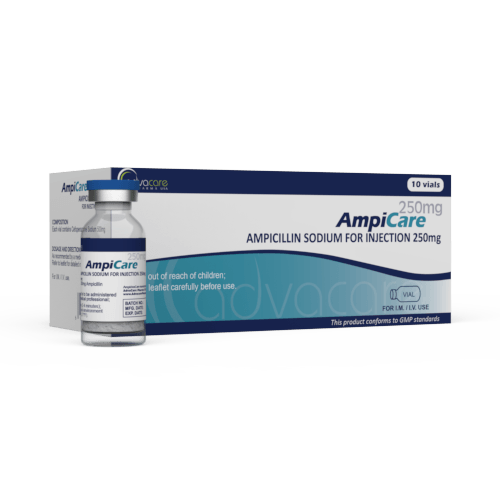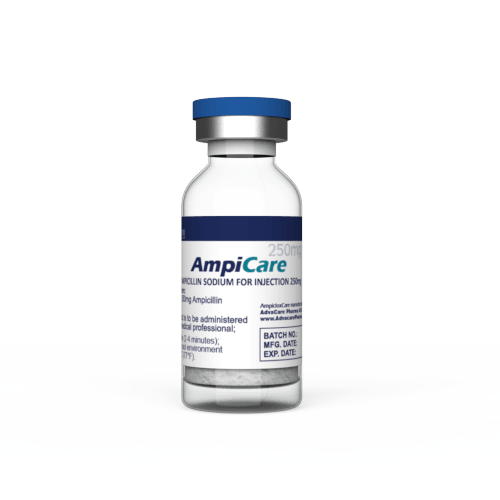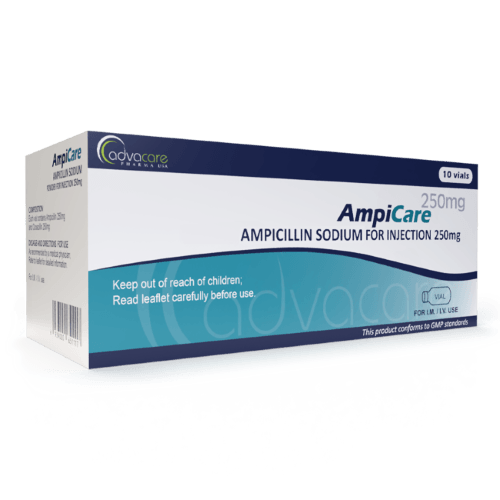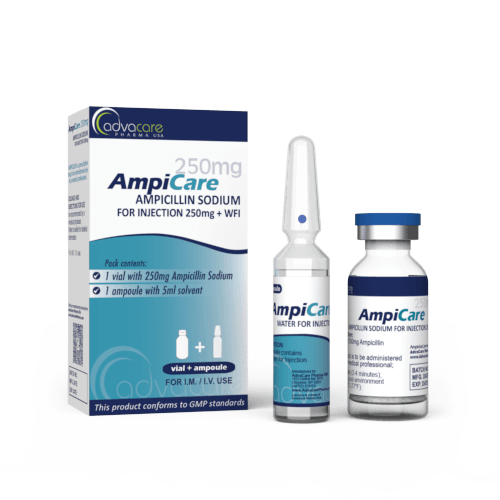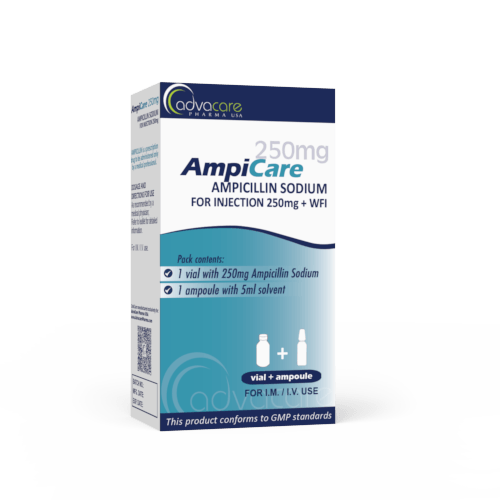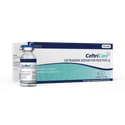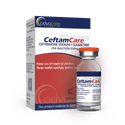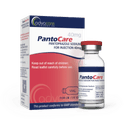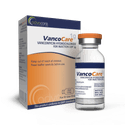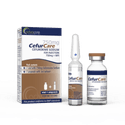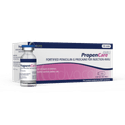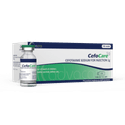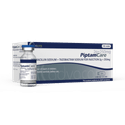- Home›
- Pharmaceuticals›
- Injections›
- Powder for Injection›
- Ampicillin Sodium for Injection
Ampicillin Sodium for Injection
Dosage
Packaging
What is Ampicillin Sodium?
Active Ingredients: Ampicillin Sodium
Ampicillin Sodium for Injection is an antibiotic drug used to treat skin and skin structure infections caused by susceptible beta-lactamase-producing strains of Staphylococcus aureus and Escherichia coli. It is also used to treat gynecological infections caused by beta-lactamase-producing strains of Escherichia coli and Bacteroides spp.
Ampicillin is a broad-spectrum, beta-lactam penicillin antibiotic. It is effective against a wide range of gram-positive and gram-negative microorganisms.
This formulation of Ampicillin Sodium has been manufactured as a fine powder for reconstitution. It is available as a box of 10 of 50 vials, or it can be produced as a combination pack with Water for Injection. Each pack contains two components—a vial of Ampicillin Sodium for Injection and an ampoule of Water for Injection. The antibiotic powder is intended to be mixed with Water for Injection and then injected intravenously.
Ampicillin Sodium for Injection is a GMP-certified product that is exported by AdvaCare Pharma. Our manufacturing factories are located in China, India, and the USA, and our extensive catalog of medical supplies is available for global distribution.
Why choose us as your Ampicillin Injection manufacturer?
AdvaCare Pharma, a US-owned pharmaceutical company, is an Ampicillin for Injection manufacturer with GMP-compliant facilities located worldwide. We conduct periodic internal and third-party facility inspections to ensure that our products meet or surpass the requirements of our distributors. Our global reach, as a trusted Ampicillin Injection manufacturer, extends to over 65 markets where we supply a wide range of products to our partners, including distributors, hospitals, pharmacies, NGOs, and government institutions.
Uses
What is Ampicillin Sodium used for?
It is used to treat many types of bacterial infections, such as:
- meningitis
- respiratory tract infections (including bronchitis, and pneumonia)
- urinary tract infections
- gynecological infections
- gastrointestinal infections
- intra-abdominal infections (peritonitis)
- salmonellosis
- endocarditis
- septicemia
- osteomyelitis
- enteric fever (typhoid)
Ampicillin may also be used to prevent group B streptococcal infection in newborns.
How is Ampicillin Sodium for Injection used?
This medication is produced as a powder for reconstitution. It is typically mixed with water for injections and then administered by injection into a vein or muscle. Parenteral usage is typically used when oral administration is not possible.
Extraperitoneal application is sometimes used after certain types of surgery.
What dose should be given?
The exact dosage is based on the severity of the infection, age, gender, and body weight:
- For septicemia, endocarditis, or osteomyelitis, the usual dose for adults is 500mg, given 4-6 times per day, IM or IV for 1-6 weeks.
- For intra-abdominal sepsis, the usual dose is 500mg, given 4 times per day IM or IV.
- For meningitis, the usual dose is 2g, given every 6 hours IV. For children, the typical dosage is 150mg/kg, given daily in divided doses.
Refer to a doctor or pharmacist for guidelines on dosage.
Side Effects
As with all pharmaceuticals, some unwanted effects can occur from the use of Ampicillin Sodium for Injection.
Common side effects include, but may not be limited to: • nausea or diarrhea • headache • rash • abdominal pain • vaginal itching • black or "hairy" tongue
Seek medical attention if the following develop:
- any signs of an allergic reaction
- bloody or watery diarrhea
- flu-like symptoms (fever, chills, or swollen lymph nodes)
- shortness of breath or lightheadedness
For a comprehensive understanding of all potential side effects, consult a medical professional.
If any symptoms persist or worsen, or you notice any other symptoms, please call your doctor immediately.
Precautions
Do NOT use Ampicillin Sodium for Injection if:
- You are allergic to Ampicillin or other penicillin antibiotics.
- You are taking other antibiotics.
- You have mononucleosis.
- You have been recently given or will be getting a vaccine.
There are known possible drug interactions, including with methotrexate. Consult with a doctor about any medications you are taking before treatment with Ampicillin.
The use of Ampicillin during pregnancy may increase the chance of miscarriage. Breastfeeding while taking Ampicillin can cause sensitization. Consult a doctor or healthcare professional before treatment.

You might be interested in...
Why AdvaCare Pharma?
As an industry leader, we are aware of our responsibility to provide affordable and sustainable solutions to improve healthcare worldwide.
